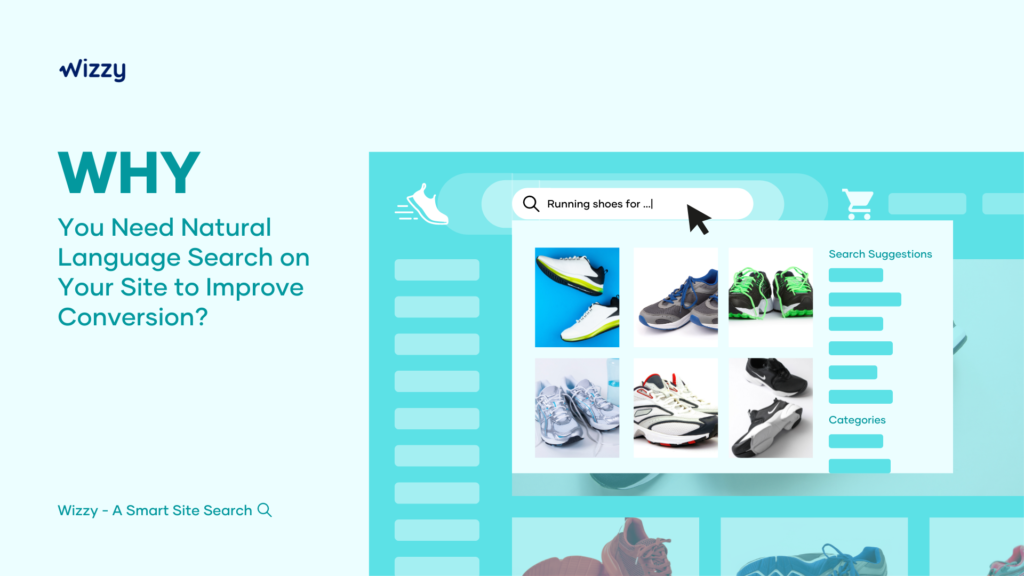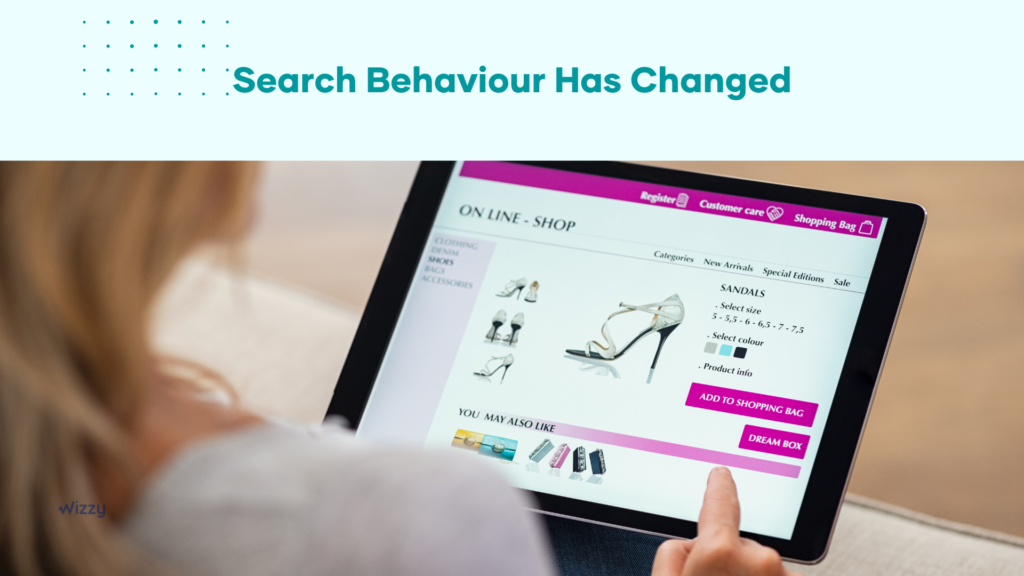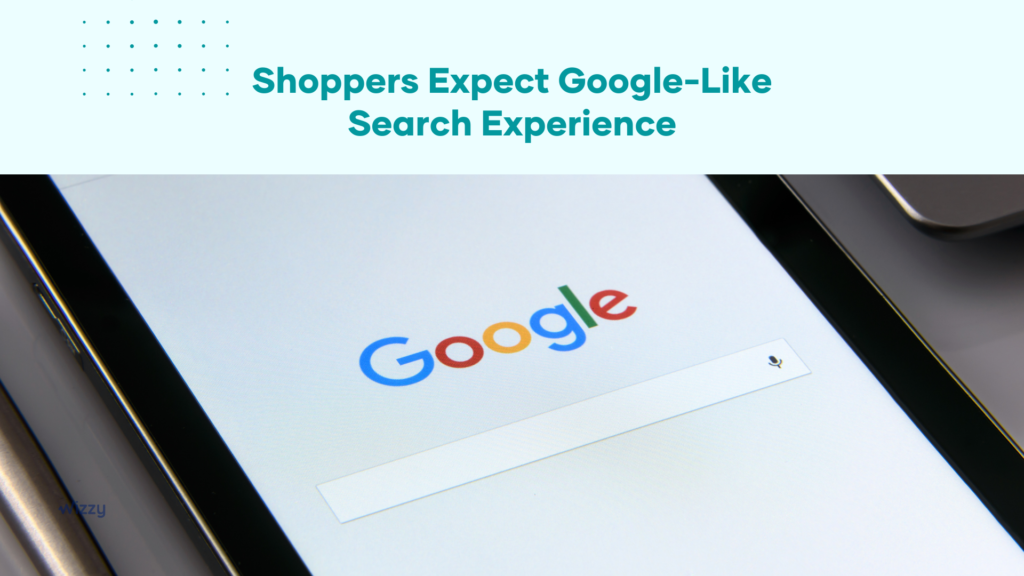Why You Need Natural Language Search on Your Site to Improve Conversion
Written by Alok Patel

Search is a critical part of your site. It’s the tool that allows users to find what they’re looking for. It’s a key component in the customer journey but often gets overlooked as an improvement area.
Traditional rule-based search has been around for some time and it works fine if you know exactly what you’re looking for. But shoppers are changing the way they search and e-commerce owners need to adapt their strategies to meet those changing needs.
This blog will take you through the changes in the online shopping patterns and how you can bridge that gap.
Shopper Search Behaviour Has Changed

Long gone are the days when shoppers were typing in as they would read out of a book: ‘Dr. Martens 1460 black leather lace up boots.’ And if the product didn’t match the exact query, it wouldn’t appear in the results — and that was it.
But today, shoppers search more like they talk, typing in queries like ‘black boots for men‘ or ‘martens for women‘.
Conversational search queries are at the core of how we communicate today. It’s quicker and more natural than typing specific keywords.
Also, driven by mobile devices and virtual assistants like Siri and Alexa, the way people interact with technology and search for things has changed dramatically over the past five years. According to Juniper Research, the revenue from voice commerce is on the rise and is expected to reach $80 billion per annum by 2023.
This increased popularity of voice assistants combined with the familiarity of search engines means that shoppers are used to searching for products in a very conversational manner.
It’s all about natural language search now.
Shoppers Expect Google-Search Like Experience with Every Search Bar They Encounter

It’s not a secret that Google is one of the most successful and commonly-used search engines globally. Google’s search engine has changed how people search for information, and discover products and services on the web.
When people search for something on Google, their queries take a more natural tone. They don’t bother to use the right keywords to get the best results. They just type the problem or situation they want to solve, like:
- ‘Best hotel in London’
- ‘What are the affordable hotels in London’
- ‘Cheap hotels in London with free parking and breakfast’.
They expect Google (or any other search engine) to understand them and show the most relevant results.
But, what does this have to do with your e-commerce business?
Simply put, shoppers expect similar levels of functionality from every search bar they encounter, including the search bar on your site.
This means your shoppers expect:
➔ To be understood and not have to worry about spelling or grammar rules.
➔ To find relevant results, even when they can’t remember exact category or product names.
➔ Their search queries and phrases to be understood like a real conversation — sometimes using jargon, slang or abbreviations, and plain English words.
This new way of searching is called Natural Language Understanding (NLU). NLU uses machine learning, artificial intelligence (AI) to understand and interpret shoppers’ search intent — just like we humans do. It also makes every interaction with the shopper personalised based on past behaviour and the intended meaning behind the words.
We cannot expect shoppers spending time to figure out your search feature. If it doesn’t work like Google search (or some other familiar interface), they won’t bother figuring it out. And this means losing out visitors who exit your page and may never come back if your site search isn’t tuned to identify natural language queries.

Why Your E-Commerce Site Search Needs NLU Built-In By Default
If you’re not a developer, the mention of ‘NLU’ might sound like something you need to know but don’t quite understand yet. So let us explain why Natural Language Understanding (NLU) is such a big deal to e-commerce site search.
The term NLU refers to the ability of computer software to understand human languages — specifically, how humans form sentences and phrases. It has been making big strides in recent years, thanks to the rise of AI.
So how does it work?
Let’s say you want to find a coffee maker on an e-commerce site. You go to the search box and type in: ‘I want a coffee maker with a timer that grinds beans.‘
Although that may seem like a simple sentence to a human, most site searches may have trouble understanding it. In fact, until a few years back, most e-commerce sites had no idea how to deal with such search queries.
But with the introduction of NLU, websites are now pumping out relevant results no matter how ‘human’ the search query sounds.
Here are three practical reasons why you need NLU on your site.
1. NLU helps you convert visitors to sales
Shoppers often look for a specific item that fits their needs. They want the convenience of natural language search on every site they visit. Instead, they don’t want to tinker with filters and prefer a simple, straightforward path from their query to the product they want to buy.
In fact, in a MarketingCharts survey, 28% of consumers say that their biggest frustration is irrelevant product searches which 18% say that they’re frustrated when the search doesn’t recognise their search queries.
The solution to most of these bottlenecks is NLU.
Natural language allows them to find the exact product they want without knowing the exact name of the product or its attributes. So this means it shortens their product-discovery-to-purchase journey and increases the chances of conversions.
2. NLU mimics Google-like search behaviour.
The most important thing online retailers can do right now is address this change in shopper behaviour. You need an NLU that’s not only intuitive but also provides shoppers with the best possible results. When you do, you’ll be able to bridge the gap between Google and your search technology and give shoppers what they want—quickly, accurately, and reliably.
3. NLU increases customer retention.
The biggest benefit of NLU is customer retention. A customer who can quickly get their questions answered will be more likely to buy from your site repeatedly. When you can read your customers’ minds, so to speak, then you’ll be able to keep them coming back for more.
4. NLU personalizes product recommendations for shoppers and increases your average order value (AOV).
Shoppers rarely have a precise item or product variant in mind. Instead of browsing through every product category until they find a match, they’re more likely to search for ‘blue shoes’ or ‘pink dress.’
But what if you could use their input to make smarter suggestions?
With the right natural language search technology enabling your site search, you can update the product recommendations instantly with items from your inventory that meet those criteria. And this can help increase your AOV without requiring the customer to browse through multiple pages or even categories.
How Is NLU Built for E-Commerce Sites?
The ability to infer a customer’s intent with NLU is no longer just a feature but a necessary component of any e-commerce store. And the best part is that NLU works for businesses of all sizes and domains to provide a better shopping experience.
We’ll show you how your business can benefit from using NLU and how you can use it to improve your site.
Semantic Search
Semantic search is a step ahead of traditional keyword matching, which typically ignores word order, synonyms and other nuances of language. Instead, semantic search interprets the meaning behind a user’s query, allowing it to match related concepts with highly relevant results.
For example, what does a shopper looking for ‘men’s summer shoes’ expect to see in the results? What are their preferences? Is it the colour of the shoes that matters the most? Or is it the design that they are after?
The algorithms behind semantic search help in identifying the search intent. This way, you know what shoppers want and can provide them with relevant products.
In this case, through semantic search, your site search can interpret “men’s summer shoes” and show them products like men’s sandals or beach flip-flops as well.
Smart Search with Filters
With an NLU that powers your website’s search bar, you can create filters that allow users to narrow down their search results based on their queries — or directly apply filters on the background based on the user’s query.
Such smart filters can reduce user frustration to go through a few more actions to find a product they like. And directly display products shoppers are most likely to be interested in.
Automatic Enhancement of Search Results
The trend so far has been to build a simple keyword search engine and then improve it over time. But the problem with this approach is that the improvements are often manual and hence time and labour intensive.
You have to go through the logs to see where users are spending too much time or not getting the results they want — and then manually tweak the system based on what you find. This is a lot of work, and it’s very slow.
What if you could use NLU to automatically improve your search engine instead?
With an AI-powered site search, the site search learns from NLU data and tweaks the search results to be more relevant than yesterday. This means you’ll incrementally improve your site search functionality over time — without having to do any work on your part!
Why Wizzy Is Your Best E-Commerce Site Search Technology Choice
At its core, search connects people with the products they want.
In e-commerce, this means connecting shoppers with the products they’re searching for and making their shopping journeys more enjoyable, natural and fulfilling.
The problem is that many site search tools don’t provide a great user experience. They fail to understand the search intent and return irrelevant results, leading to lost sales and frustrated users.
A great site search tool can do much more than provide a simple list of search results or autocomplete suggestions. It should give your users a seamless shopping experience by automatically understanding their intent and desires, regardless of how they phrase their queries.
And this is exactly what Wizzy offers.
● Wizzy comes with built-in NLU, which is better than the usual keyword matching — because it understands the meaning of your shopper’s search query, regardless of how they phrase it. This way, it delivers relevant results even when shoppers use phrases or typos.
● Wizzy displays visual search results, which means the shoppers can find the right product faster and easier.
● Wizzy interprets the search intent and displays relevant results, no matter if the user types in queries with spelling or grammatical errors.
Want to take a look at how Wizzy works in real-time?

Share this article
Help others discover this content
